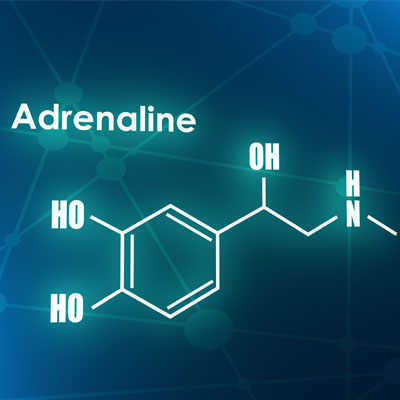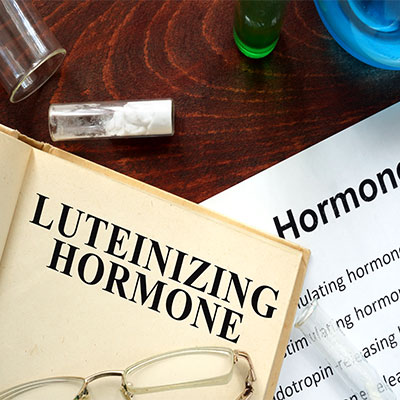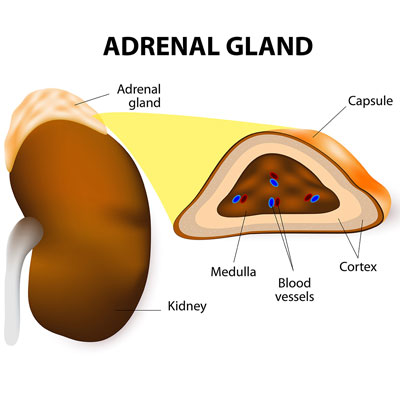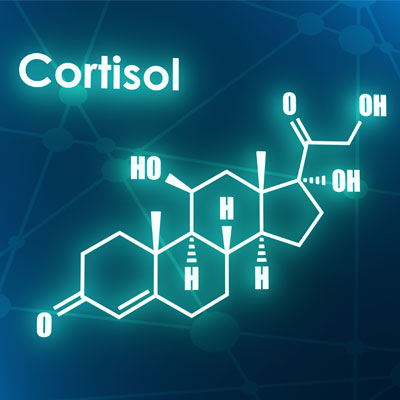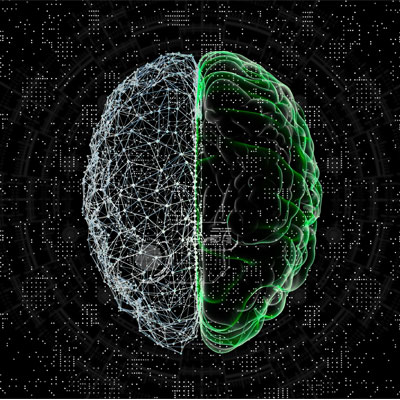Contents
- What Is Adrenaline Hormone
- What is the function of adrenaline hormone during stressful situations?
- How Is Adrenaline Hormone Regulated?
- What Happens If You Have Low Adrenaline Hormone Levels?
- What Happens If Adrenaline Hormone Levels Are High?
- Why does the body release adrenaline when there is no stressful event?
- What does adrenaline do if you have too much in your body?
- How Do You Test Adrenaline Hormone Levels
- What is the adrenaline hormone test for elevated levels?
- How Do You Balance Adrenaline Hormone?
You may know it as epinephrine or adrenaline hormone – either way, it is a chemical messenger that fulfills a vital role in the human body. As with cortisol, adrenaline is an essential part of the “fight or flight” response that occurs when the brain senses some form of impending stress or danger.
The Trusted sourceWhat is AdrenalineCambridge DirectoryGo to sourceadrenaline definition is as follows: an adrenal gland hormone secreted at times of stress to increase carbohydrate metabolism, breathing, blood circulation, and muscle preparation for exertion. Epinephrine is also a medication uses in epi-pens to counter an allergic reaction.
In reaction to the fight or flight adrenaline function, your body exhibits an array of symptoms such as sweaty palms, racing heart, feeling lightheaded, and hair standing on edge. You become alert to your surroundings as you look for a way to escape the situation.
In this review of adrenaline hormone facts, we will examine the following:
- The function of the adrenaline hormone
- How the production of adrenaline is regulated
- What happens when a person has low levels of adrenaline
- The effects of elevated adrenaline levels
- How doctors test adrenaline levels
- How to balance adrenaline hormone levels
Along with cortisol, adrenaline hormone is part of the body’s “fight or flight” defense.
What Is Adrenaline Hormone
Do not confuse adrenaline hormone with Trusted sourceNoradrenalineScience DirectGo to sourcenoradrenaline . Although they are produced in the same place and are both neurotransmitters, they have different functions. Both hormones belong to the compound classification of catecholamines and exert effects on the central nervous system. Whereas adrenaline works on the alpha and beta receptors, noradrenaline affects only alpha receptors in the arteries. Adrenaline hormone function impacts the beta receptors in the lungs, heart, and skeletal muscle arteries.
What is adrenaline going to do differently from the functions of noradrenaline?
Noradrenaline (norepinephrine) has the following effects during times of stress:
- Increase heart rate
- Boost blood sugar levels
- Increase contractility of the heart
- Narrows blood vessels to increase blood pressure
What is the function of adrenaline hormone during stressful situations?
Adrenaline hormone function (epinephrine) exerts the following effects:
- Increase heart rate
- Redistributing and sending blood to the muscles for a temporary increase in strength – that is why some people can muster the strength to lift a car off someone pinned underneath
- Increase contractility of the heart
- Enlarging the eye pupils for better vision
- Sharpening mental alertness and focus for quick thought and reaction
- Altering metabolism to boost blood sugar levels
- Relaxes airway smooth muscles and expanding air passages in the lungs to improve breathing
- Reducing the body’s sensation of pain – allowing a person to flee danger even when injured
You may have heard the term “Trusted sourceWhat happens when you get an adrenaline rush?Medical News TodayGo to sourceadrenaline rush ,” which is an accurate depiction of what happens when the adrenal glands flood the bloodstream with epinephrine. Although the reaction to adrenaline is immediate and ends when the stressful situation resolves, the effects on the body can last up to an hour after the onset of the adrenaline rush.
While it may seem as though many of the functions are the same, noradrenaline can narrow blood vessels to increase blood pressure. Adrenaline can help relax airways to improve breathing.
As a medication, Trusted sourceEpinephrine injectionDrugs.comGo to sourceepinephrine treats anaphylactic allergic reactions, severe asthma attacks, and cardiac arrest. Doctors may also use epinephrine to treat septic shock as well as adding a small amount to anesthesia to slow the body’s absorption of the anesthesia and increase pain relief duration. Norepinephrine treats extremely low blood pressure.
Adrenaline prepares the body to act quickly in times of stress.
How Is Adrenaline Hormone Regulated?
Adrenaline hormone secretion occurs in the adrenal glands – more specifically in the adrenal medulla. The two adrenal glands, which sit atop the kidneys, consist of two parts – the adrenal cortex and the adrenal medulla. From the adrenal cortex, we get the corticosteroid hormones cortisol and aldosterone. Additionally, the adrenal cortex also gives us small amounts of the steroid hormones progesterone, estrogen, DHEA, and testosterone.
Adrenaline hormone and noradrenaline come from the adrenal medulla. While the hormones of the adrenal cortex are vital to daily functions, those of the adrenal medulla are not, although they are still important at specific times.
How does adrenaline work regarding its secretion into the bloodstream?
In times of stress, the sympathetic nervous system is stimulated into action. At that time, the adrenal medulla receives signals via the activation of nerves connected to the adrenal glands. Unlike other hormones that require stimulation from signaling or regulating hormones, adrenaline and noradrenaline rely on nervous system messages.
The adrenal medulla releases adrenaline into the bloodstream within 2 to 3 minutes after the onset of the stressful event. Upon the end of the stressful situation, the nerve impulses lower, resulting in an end to adrenaline production.
Noradrenaline, on the other hand, is released mostly from the sympathetic nervous system’s nerve endings, with only a small amount coming from the adrenal medulla. A continuous low level of release into circulation differs from that of adrenaline, which only increases during times of acute stress.
Adrenaline release from the adrenal medulla occurs only in times of acute stress.
What Happens If You Have Low Adrenaline Hormone Levels?
Adrenaline hormone deficiency rarely occurs as a medical disorder. Is adrenaline a hormone that can become low even in times of stress?
If a person were to lose both adrenal glands through surgery or disease, the body would still have noradrenaline to count on during times of extreme stress as most of its production is via the nervous system, not the adrenal medulla.
In that type of situation, only a few of the adrenaline hormone effects would not be present. The body has other hormones that can help make up for some of the actions of adrenaline, including cortisol, the “stress” hormone.
Chronic stress and poor nutrition can reduce the body’s sensitivity to adrenaline, as can medications such as Ritalin (methylphenidate).
In some cases, the body’s ability to enact a proper fight or flight response to a stressful event may be limited. Low adrenaline and noradrenaline levels could lead to the following symptoms:
- Anxiety
- Sleep disorders
- Fibromyalgia
- Depression
- Restless leg syndrome
- Migraines
- Hypoglycemia
In many ways, the body can compensate if adrenaline is not available due to disease or surgical removal of the adrenal glands.
What Happens If Adrenaline Hormone Levels Are High?
Unlike the rarity of low adrenaline hormone levels, it is entirely possible to have too much adrenaline in the body that continues to remain in the bloodstream. Elevated adrenaline levels are also possible even if there is no perceived stressor.
When that occurs, you might experience the following symptoms:
- Rapid heartbeat/palpitations
- Excessive sweating
- Headaches
- Dizziness
- Vision changes
- Lightheadedness
- Anxiety
- Nervousness
Why does the body release adrenaline when there is no stressful event?
One possibility (rare) is a tumor of the adrenal glands that can stimulate adrenaline release. The tumor, called Trusted sourceWhat is a paraganglioma?You and Your HormonesGo to sourceparaganglioma (outside the adrenals but along the sympathetic nervous system nerves) or pheochromocytoma (adrenal gland) is rare but may run in families.
While the purpose of adrenaline is to prepare the body to act in times of a stressful event, for some people, a job interview, taking an exam, or even a doctor or dentist visit can trigger an adrenaline release.
Some people who are “adrenaline junkies” live for the adrenaline rush they get from participating in what others might deem a dangerous activity. Bungee jumping, skydiving, rollercoaster rides, and car racing are examples of these activities. Excessive activity can result in continual releases of adrenaline into the body, which could be dangerous over time.
It is also possible to have an increase in adrenaline at night if a person has sleep apnea especially when associated with obesity. If the body senses breathing difficulties, it could release adrenaline to wake you up. Some dreams can also trigger the fight or flight response if there is a perceived threat, such as falling or other danger.
How does the adrenaline hormone affect the body in people who have experienced stressful situations that continue to impact their lives?
Individuals with post-traumatic stress disorder (PTSD) may have an increased risk of adrenaline release, especially if triggers for their experience occur. The state of hyperarousal that this causes can lead to difficulty sleeping, poor concentration, feeling jittery, irritability, and increased stress.
What does adrenaline do if you have too much in your body?
Ongoing periods of excess adrenaline can result in an increased risk of the following:
- High blood pressure
- Heart disease
- Weight gain
- Metabolic syndrome
- Glucose intolerance
Ongoing elevated adrenaline levels can lead to potentially dangerous symptoms and health conditions.
How Do You Test Adrenaline Hormone Levels
Testing adrenaline levels is not as straightforward as with other hormones. The hormone specialist will typically test aldosterone and cortisol levels to determine adrenaline insufficiency. ACTH stimulation and insulin-induced hypoglycemia tests are often used, as well.
If adrenal insufficiency is detected through these tests, the next step is often a CT (computed tomography) scan of the abdomen to check adrenal gland size, composition, and to rule out signs of calcium deposits. The latter is an indication of prior tuberculosis exposure that may then be confirmed with a skin tuberculin test.
Pituitary gland functions may be checked by measuring thyroid-stimulating hormone (TSH), luteinizing hormone (LH), and follicle-stimulating hormone (FSH) levels.
What is the adrenaline hormone test for elevated levels?
The doctor will determine if you have high levels of adrenaline hormone based on your symptoms as well as ruling out other health issues. Blood tests to measure cortisol and aldosterone levels that come back high may help assess the situation.
Blood tests and a complete examination can help the doctor assess your adrenaline hormone levels.
How Do You Balance Adrenaline Hormone?
If the problem of too much adrenaline stress hormone is due to a medical condition or tumor, the doctor will address that situation directly. When obesity and sleep apnea are concerns, losing weight, and seeking treatment for sleep apnea may help reduce adrenaline production.
People dealing with PTSD should seek help for their stress to reduce the amount and severity of their reactions. Medication, lifestyle changes, exercise, diet, and therapy, may all help reduce stress.
If you are looking to learn how to lower adrenaline hormone levels, you may want to try the following steps to control your body’s reactions:
- Remove yourself from the stressful situation if possible. Go outside and breath in some fresh air. Take a walk and focus your attention away from the stressor.
- Slow your breath – the old breathing into a paper bag trick works great to balance oxygen levels. Doing so can help reduce dizziness and provide a calming sensation.
- Engage in exercise, especially in relaxing forms such as yoga, swimming, walking, or stretching.
- Meditate or find a word that you can focus on and repeat to help calm the brain and the body. Imagery – picturing a soothing scene such as flowing water of a river or gentle waves rolling on a beach may help reduce stress.
- For long-term relief from adrenaline hormone overload, think about taking up a hobby, volunteering, using aromatherapy, spending time with friends, and learning relaxation techniques. Laughter is one of the best ways to reduce stress, so put on your favorite comedy movie or television show and laugh.
- A. J. Aho, M. I. Linna, M. Salmivalli, M. Grönroos, PhD, M. Möttönen, R. Paul”
- Christopher J R Gough, Jerry P Nolan
- Bjarne Madsen Hardig, Michael Götberg, Dr. Malin Rundgren, Dr. Matthias Götberg, David Zughaft, Robert Kopotic, Henrik Wagner
- Written by Jacquelyn Cafasso Medically reviewed by Debra Sullivan, Ph.D., MSN, R.N., CNE, COI
Role of adrenal hormones (adrenaline and DOCA) in experimental hypertension
The role of adrenaline in cardiopulmonary resuscitation
Physiologic effect of repeated adrenaline (epinephrine) doses during cardiopulmonary resuscitation in the cath lab setting: A randomised porcine study
Adrenaline Rush: Everything You Should Know

